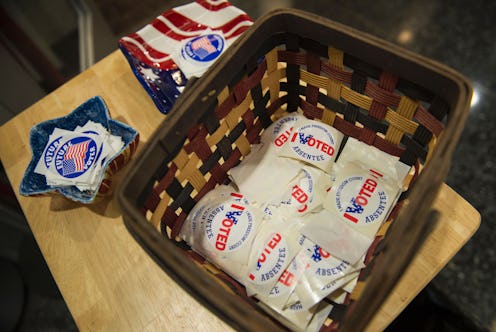News
Yes, The Popular Vote Matters
You probably learned about the Electoral College in fifth grade or so, and like every other American schoolchild, you probably thought it sounded like a raw deal. There are over 200 million registered voters in America, and yet apparently, 538 electors get to choose the president for them. Even with our modern electoral-vote-by-state system, our presidential election process often seems unfair. At times, it appears as if voters only matter in swing states — candidates are likely to hold more rallies in Florida and Ohio in a week than they will in the whole election in California.
In 2000, we saw something we hadn't since 1876 — George W. Bush came into office after losing the popular vote (by more than half a million votes). Periodically, there will be arguments (usually from Democrats, for whom the 2000 election result still smarts) about why Electoral College should be abolished and replaced with the popular vote.
But despite the efforts of the National Popular Vote project, it looks like we're stuck with the Electoral College for the time being. Still, in this weird system, the popular vote matters. Not only are the chances of a popular vote / electoral college split pretty close to nil (2000 was the only case in the country's 240-year history where it happened without meddling from Congress), the popular vote also matters in terms of the president's real power as they enter office.
In the American government, the president's formal power is deliberately limited compared to that of Congress. The president cannot pass laws, spend or raise money, or declare war without the help of the legislature. And the president's power to convince Congress to do any of those things depends on their power to convince them that it is in their best interest. In politics, that means convincing Congress that the president is popular, that a large majority of the country, beyond the needs of the Electoral College, likes them.
This is often summarized by the term "mandate" — the proof in the election that the American people side with the president on issues of policy. There are always debates about how much of a mandate a new president has earned. But the power of presidential popularity is clear in how other politicians act — highlighting their closeness to a popular president (even transcending party) and keeping their distance from an unpopular one.
So even if it's the job of 538 electors to decide the president, your vote matters. If there are policies you want passed, that extra vote will do a little bit to make your voice heard in other parts of the political system. With an election that looks near-certain in its outcome already, the big question left is the popular vote margin, and that still matters.
